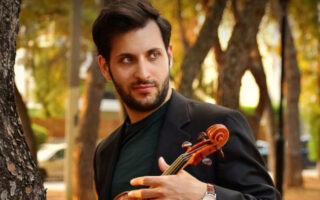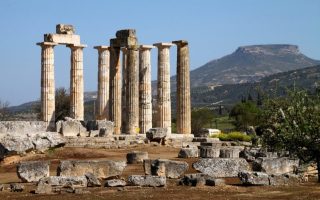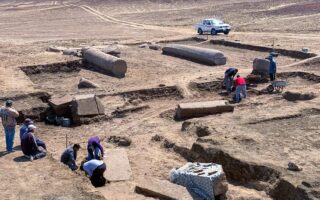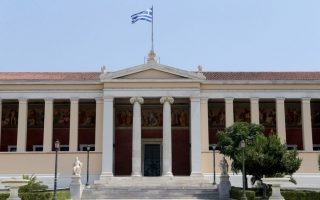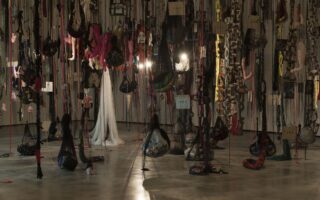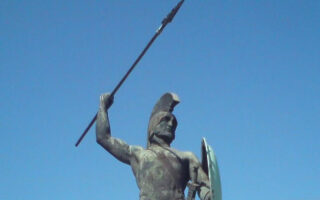Inspiring new generations with tradition
Lefteris Drandakis, artistic director and reformer of the historic Lyceum Club of Greek Women, explains how we are shaped by our heritage
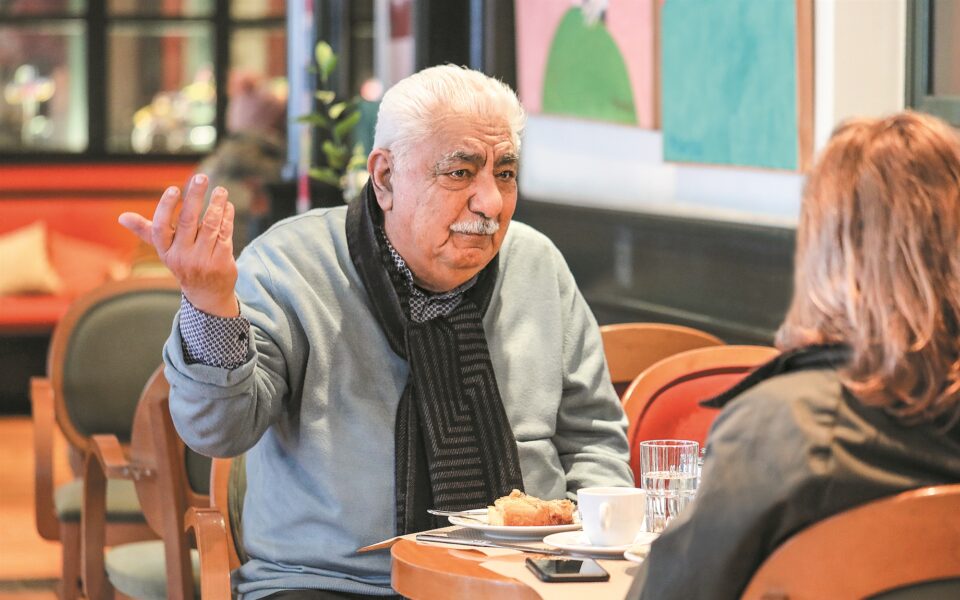
“He looks absolutely Cretan; like he’s come down from Mount Psiloritis, but without the hard edges. He’s really sweet. I know you’ll enjoy a conversation with him,” fellow journalist Katerina Daskalaki, the faithful secretary of the board of the Lyceum Club of Greek Women, tells me as she describes Lefteris Drandakis. She is the one who insisted that I meet the 90-year-old artistic director who is credited with transforming the Lyceum, an institution with a history stretching back 111 years, into the biggest and most inclusive association of demotic Greek dancing in the world.
His enlightened and bold choreographies have packed the house at Greece’s Herod Atticus Theater and Athens Concert Hall, and have also traveled to the United Kingdom and Italy, and all the way to Mexico, Canada and Asia. None of this would have been possible, of course, without his unquenchable passion for research, which has seen him scouring the breadth of Greece to ensure that not a fragment of its dance heritage is lost.
I meet him for lunch at a restaurant near his downtown Athens home and am greeted with a bag full of gifts: books, CDs, programs and pamphlets. With white hair, a mustache that brings emphasis to his frequent smiles, and eyes sparkling with cheerfulness, he starts telling me all about his life, going back to the early days in his native Rethymno, in a voice tinged with Cretan melodiousness.
“I grew up in one of those families that listened to a variety of different music. A few cousins from the countryside were excellent singers and church chanters and they taught me to love mantinades,” he says, referring to the traditional Cretan songs made up of short, spoken verses. “There were other cousins studying at the Reythmno Conservatory to become pianists. Their classes finished at night and they were scared to go home alone, so they would ask me to wait for them at the school as I did my homework and walk them home afterward. And that’s how I became acquainted with the classical repertory – as a stowaway listener. I knew Beethoven inside and out by the time I was 12. That was also a time when people loved rebetiko, so it was inevitable that I should discover it too,” he says.
Drandakis left Crete as soon as he came of age in 1950 and took up economics. He lasted only one year at the Athens University of Economics and Business before dropping out and getting a job with a state social security fund. “I decided to join the Lyceum in my free time, with the young men and women I was hanging out with. I knew nothing about dancing. As a Cretan, I had obviously watched others, but I did not know a single step myself. The first year was kind of boring, but in the second, we got this enlightened new teacher, Kostas Lambrou. He was an instructor at the Athens Sports Academy and a former dancer of the Lyceum and the Dora Stratou Dance Theater. He made us fall in love with dancing with his technique and the way he spoke about it,” says Drandakis.
His group was later invited to dance at a tea party, dressed in traditional costumes. Shortly after, it appeared at an event for a group of diplomats at the luxurious Hotel Grande Bretagne in Athens. “That was it!” says Drandakis. “There I was, a kid from Rethymno, in fancy ballrooms. And before I could even get used to the excitement, the head of the male wardrobe department, Manolis Mantzavelakis, asked me if I knew how to dance the Cretan sousta. I said yes even though I had no idea. ‘Great,’ he said. ‘You’re going to Holland with the Lyceum next week to dance for a group of philhellenes.’ I became an ace at the sousta in 10 days. And that’s the story of how I dove in at the deep end of dance; that and the fact that I loved the team spirit,” explains Drandakis, who was responsible for the folk dancing segment of the Athens 2004 Olympic Games Closing Ceremony.
‘They will learn about teamwork by using their senses, by using their hands to hold the hand of the person beside them, instead of swiping their phone’
The 1960s were a turbulent time for the Lyceum, with several changes in its management and staff. “That’s when the idea came up for me to take over as artistic director. My knees were trembling but I said yes. That was 1966 and I am still loyal to the Lyceum. It was an incredible and life-changing experience. I had the freedom to design what I wanted, to structure, for example, an entire performance around a single theme,” he says.
His innovative approach breathed new life into the Lyceum and turned it into the country’s most popular folk dance and music company at a time when the folk arts were going out of vogue across the country. Aware that times were changing and that modern times were overshadowing traditions and customs, Drandakis went on to launch an album series containing recordings of traditional folk songs from different parts of Greece. His efforts and those of others like him have helped ensure that Greece’s cultural heritage is not treated like something to be kept locked away, but is kept alive.
“I think that my love for many genres of music and art is what prompted me to focus on themes, such as the sea, the wedding ceremony or the seasons, for example. You see, for the old-timers, there were few moments in life that were not marked with specific songs – from lullabies and funeral laments, to songs sung during the sowing season and those at the harvest party and from songs about immigration to those about love. Everything came with a song,” says Drandakis.
I listen as he recounts how discovering folk dancing changed his life and can’t help but ask why a young person today should become a member of the Lyceum.
“Because it’s wonderful,” he replies promptly. “Because they will come to understand the passing of the year, the seasons through their songs; they will learn about teamwork by using their senses, by using their hands to hold the hand of the person beside them, instead of swiping their phone. Because they will become a link in an ancient chain of humanity that knows how to work in a synchronized manner and to put the whole above the self. If these are not great lessons, then I don’t know what is.”
Drandakis hails the work being done by the Lyceum’s branches and other association like it across the country in maintaining and reviving the public’s interest in folk music and dancing.
“Heritage is an umbilical cord that we think is cut when we move to cities, but that is not the case. The music, foods and experiences of our forbears define us, whether we know it or not. The Lyceum provides young people with the inspiration to go further, to explore more about their past and their heritage,” he says.
“There are, of course, places like Crete, Epirus and the Dodecanese where people are both modern and old-fashioned at the same time. These are blessed places because they still provide us with so much information and ideas on a way of life that has all but disappeared in other parts,” adds Drandakis.
However, he adds, “Greeks have always been connected to their traditions and dances and always will be. If this connection were weak, it would have broken a long time ago. I think that in these times of rapid change brought on by technology, young people will understand how precious these bonds are.”
